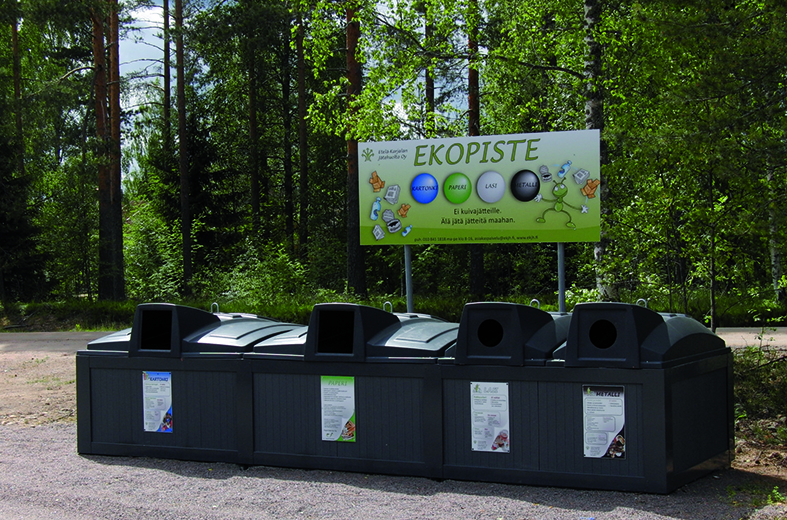Lappeenranta is a pioneer in recycling, aiming to minimise the final disposal of waste that burdens the environment. In Lappeenranta, separating biowaste from dry waste became mandatory as early as 2002, whereas the law regarding the separation of organic waste did not enter into force, until 2016.
Biowaste has been sorted in Lappeenranta since 2002
All dry waste generated in the Lappeenranta region is used in energy production. Etelä-Karjalan Jätehuolto Oy, which handles the management and transportation of waste produced from residents in its owner municipalities, delivers the dry waste to Ekokem’s waste-to-energy plant for recovery. The energy obtained from the dry waste produced by households is equal to the heating needs of 6,000 detached houses.
The Kukkuroinmäki waste processing centre in Lappeenranta processes approximately 65,000 tonnes of waste per year. Almost half of this municipal waste is composted, one half is recycled, and less than one tenth of it ends up in final disposal.
One hundred percent of the dry household waste is delivered for recycling into energy. Glass, metal, cardboard, plastic and paper are also recycled. Hazardous waste is delivered elsewhere for processing.
Biowaste, garden waste and sludge from wastewater treatment plants are composted in a composting plant located on the premises of the waste centre and later used in, for example, civil engineering projects. Even the sand used for sanding the streets of Lappeenranta is recycled and utilised.
Thanks to the extensive network of waste collection points jointly maintained by packaging producers and Etelä-Karjalan Jätehuolto Oy, as well as the waste-related guidance they provide, the residents of the region also efficiently and actively sort and recycle their waste.

